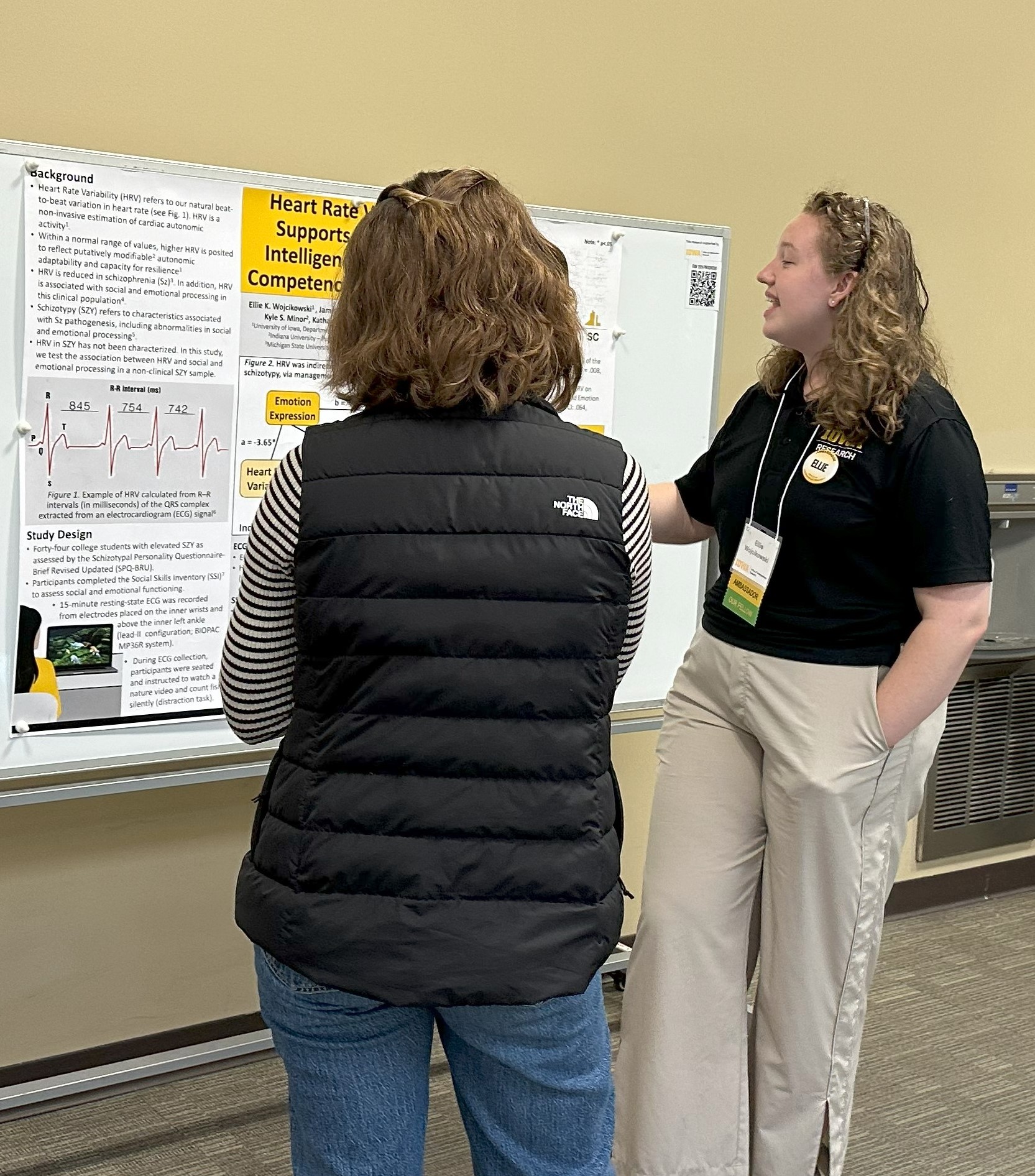Step 1: What are your needs and expectations?
When looking for an undergraduate student for research, there are a couple of questions you need to consider:
- What would you like students to achieve within your research project?
- How many students would you like to work with?
- 1 on 1: URES course or ICRU Fellowship
- 1 - 4 students: Collaborative Projects
- How would you like to compensate them?
Step 2: Reaching out to students
There are a variety of different ways to reach undergraduate students. Here are a few ways that you can find undergraduates:
- Identify students who stand out in your courses.
- Talk to current undergraduate researchers, grad students, and colleagues. They might have connections (or peers) that could be interested in your work.
- Post an ad on the Office of Undergraduate Research 'Open Research Positions' page
- Post an ad on Handshake
- Reach out to the OUR Staff.
- Contact student support programs

Student presenting research at research festival.
Step 3: Selecting Your Undergraduate Researcher(s)
Meeting & Interviewing Select Students
Finding the right student(s) to work with you on your projects can help support and improve your research, and be an opportunity for mentorship. Here are some helpful interview question templates:
Onboarding Undergraduate Researchers
Undergraduate research is often a student's first time working with a faculty/staff member/graduate (or PhD) student 1 on 1. Below are a couple of ways you can support positive collaboration with your undergraduate students:
- Provide students with background knowledge of your research. This can include the goal of your research, your expectations of them, who they can ask questions to, and how they should communicate with others on the team.
- Outline expectations together with undergraduate students. Both mentor and mentee, you and your undergraduate, knowing what the expectations are can help with onboarding, achieving project goals, and helping students achieve their personal goals.
- The Office of Undergraduate Research has the Mentorship Agreement Form
- A bit more complex and broad in scope is the CIMER's Mentor-Mentee Agreement
- The first few days are for onboarding.
- Introduce them to the team, staff, and collaborators. They will be working with a group of people with more experience and they need to understand who they can ask questions to.
- Students will need guidance. A great way to start is to have them join group meetings, read research papers, shadow, and attend presentations.
- Complete required training. If you are unsure what training your undergraduate needs, please visit Environmental Health and Safety's website or the Human Subjects Office CITI Training website.